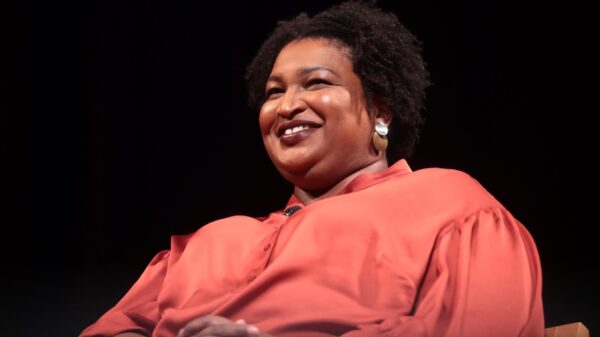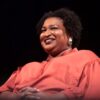By Kaylin Young, Contributing Writer
Posted 12:25 PM EST, Mon., Feb. 27, 2017
The first thing most people notice about Kyra Fox is her hair… bright blonde curls sprouting from her head. This distinctive feature makes Fox easy to spot, but it also speaks to her character. Like her hair, Kyra Fox is not afraid to be seen – or heard – especially when it comes to issues surrounding the LGBTQ community. This past summer, after gaining online attention for a spoken word piece on the mass murder in Orlando’s Pulse Nightclub, Fox started an organization-turned-nonprofit called Black, White & Different. Black, White & Different (or BWD) aims to shed light and open a dialogue about issues in the LGBTQ community. The Hilltop had the pleasure of sitting down with Fox to discuss everything from “coming out” to her plans with her new organization:
The Hilltop: Where did the idea for Black, White & Different come from?
Kyra Fox: It came from me making a spoken word video after the Orlando nightclub shooting, because I felt like people needed to see the point of view of the LGBTQ community. The video caught a lot of wind, and I started thinking about what else I could do. I started brainstorming how I could reach more people in the community and how I could educate people outside the community. About a month and a half later, I thought of social media and television because in 2016 that’s how we reach people the most. That’s where it started, but the more people I talk to the more the organization expands.
HT: Speaking of bridging that gap between self-realization and public acceptance, how do you want BWD to help others bridge that gap?
KF: Right now, we’re targeting high schools through our mentorship program. We want to expose the importance of health and wellness and helping people feel comfortable in their own skin. We want to be there to show people that we’re in college now, we’ve made it through and you can also make it through. By just showing up and being comfortable with who we are, we are showing others that you don’t have to be scared of coming out to your family or walking into a church.
HT: Do you want BWD to be an ally or an advocate?
KF: I want people inside and outside of BWD to be advocates. At first, people were coming to me saying “well, I’m not gay…can I still come to the meetings?” And I’m like “Of course you can!” It’s a movement. You don’t see only black people in the Black Lives Matter movement. Other races come together to fight for the rights of people, holding up posters, coming to rallies. For BWD, we want people outside and inside of the community being advocates. All our programs, the mentorship program, the television show, and the awareness program all involves people speaking up.
HT: Often, women of color will talk about how there isn’t enough positive media portrayal of them on television. Do you feel this statement can be made about the LGBTQ community as well?
KF: I love that question because I do feel that way. When I first started writing the proposal and premise of the show that thought came up. Every show that has an LGBTQ couple either gets divorced or (with lesbian couples) one partner will cheat with a random guy who comes in. It’s never just a positive representation – except for the show The Fosters. Not every LGBT couple ends up in crazy situations, but that’s how people see it because of the media. Whenever television shows show a gay couple cheating with a member of the opposite sex, I immediately stop watching because the media is constantly showing homosexuality as “just a phase.” We want to show that it isn’t a phase, it’s who we are.
HT: What do you want BWD’s off-campus impact to be?
KF: Right now, we are working to create BWD “Safe Clubs” in major cities all over the country. These safe clubs will have psych counselors, career counselors and people who specialize in LGBTQ mental health and awareness. We don’t want people coming in trying to change who we are; we want people to come in and say “You’re in the LGBTQ community, you’re going to have a lot of negativity thrown at you, how can I help you navigate through life?” Seventy percent of youth in the LGBTQ community don’t feel safe in their homes, so we want to give people somewhere positive to go. You don’t have to be a part of the community, but if you see yourself as different, if you need some place to be at with positive mentors and activities, that is the place. Currently we have six universities who are on board to help develop our org. The university is the center point, but any surrounding high schools, churches or foster care programs are where we also want to reach. We want people to know that you’re never alone and you can get through it.
Be on the lookout for events from Black, White and Different. You can find the video that started the movement on Kyra’s Youtube channel (FoxKyra) titled “Authentic Love.” Follow BWD on social media @BlackWhiteDiff.







